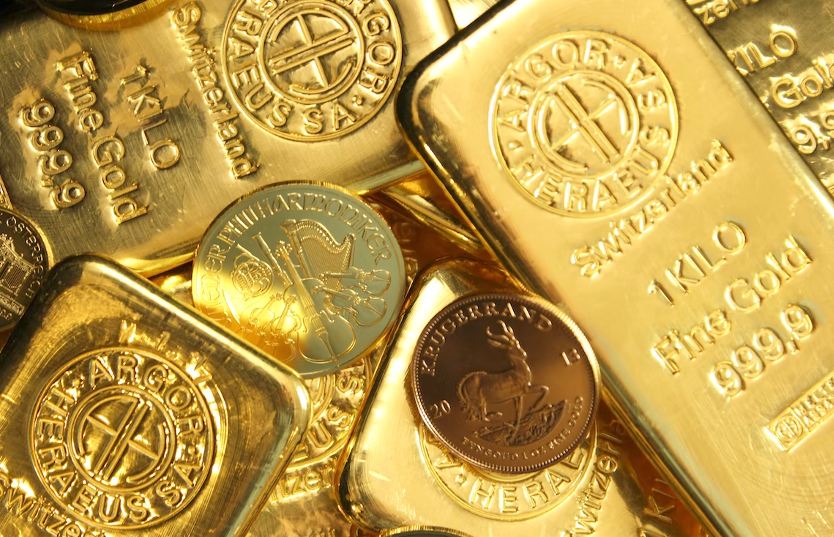The best path toward proper diversification is to invest in various assets, including alternative assets that aren’t traditional stocks or bonds. Enter precious metals, one of the most beneficial alternative asset classes for investors looking to reduce their exposure to stock market volatility. Precious metals such as gold and silver are physically scarce, chemically unique, and valuable for industrial applications. For these reasons, they’re an excellent long-term store of value.
Your Motivation
Decide why you are considering investing in precious metals. Investors pick them for a variety of reasons. That sometimes happens because metals might not be impacted by circumstances that send stocks and some commodities into a bear market. You should search for a gold IRA partner, because precious metals typically make reasonable investments to hold for the long term, according to common logic. Maybe it’s just that you’ve been following a particular metal’s performance for a while and like what you see. If the position and its anticipated performance suit your wealth-building strategy, consider this concept further.
Choose the Most Profitable Kind of Investments
Coins and bars are two examples of the many investments that may be made in precious metals. You can obtain these physical forms and keep them in safe locations if you want. An offshore bank may supply storage if you have accounts with them. Paper is an additional type of form. Examples include certificates and futures contracts. With this arrangement, you will not have actual asset ownership, but you will still be eligible for returns if the market conditions are favorable. It is essential to remember that the certificates cannot be used to purchase actual precious metals. The use of digital metal currency is the third factor to examine. Consider it a form of representative money backed by physical units that grow in value. One such example is the use of digital forms of gold coins.
Recognize the Difference between Allocated and Unallocated Metals
The terms “allocated” and “unallocated” may arise when researching various precious metals agreements. Understanding those concepts can aid you in selecting the most excellent investment option for your needs. The two can be combined in some circumstances. In the case of allocated investments, you are the sole owner. After payment, they can be kept in a safe deposit box at your bank or another secure location. At any moment, you may sell or permit the transfer of investments allotted to you. Your account will be credited with the value of unallocated investments, but you will not possess them. Even though the physical metal may remain in possession of the bank, you have become a creditor with a claim on that metal. In case of a sale, you’ll get whatever money was made. The two options are complementary and can be equally effective. If you have an allocated investment, you own the physical asset and can do whatever you want. Without paying for storage, you can reap the financial rewards of appreciation and sales unallocated.
Understand the Benefits
The versatility of precious metals is no secret. But this still might not be enough to make you want to buy gold or silver. They serve to shield savings from price increases. This is especially true now when central banks and governments worldwide are expanding the money supply through stimulus programs, and interest rates in many countries are at or below zero. The world’s central banks can now buy enormous quantities of gold and other precious metals. The world’s central banks have been net buyers over the past three years. The demand of big participants, such as central banks, can support the price. Gold, silver, and other precious metals can be used as insurance against various disasters and political upheavals. Possibilities for monetary benefit result from the increased value of your purchased precious metals. They provide high liquidity; you can buy and sell your investment quickly and conveniently at a reasonable cost. This primarily pertains to the realm of online gold and precious metals trading.
Metals’ Accompanying Expenses
There will, without a doubt, be costs associated with warehousing all of that gold and silver. Please ensure you know them before making a final decision on the site. The price of renting a storage unit each month or yearly doesn’t include the necessary permits or taxes. There could be extra inventory charges, security measures, and management on top of the rent. You can expect to pay some transaction fees if you sell some of your physical gold.
Determine Where to Keep Your Precious Metals
Coins and bars, examples of physical investments, must be kept safe. It’s wise to consider multiple options before settling on one. It has been brought up that an offshore bank might have warehouses. That is an excellent starting point. Think over which country has the best storage options as well. While safety is paramount, you should also know of applicable taxes. Find out what you owe in taxes in several countries besides your own. For foreign investors, the applicable taxes may be significantly reduced or nonexistent.
Consider Your Risk Tolerance
Holding precious metals privately or through an asset ETF can be a great diversification strategy, but it’s best to keep allocations minimal. The last several years have experienced extreme price fluctuations, even in stock markets; as a result, you shouldn’t put all your eggs in the metals’ basket. Investing in precious metals and gems can be lucrative in various ways, but doing so comes with challenges. Consider if you’re purchasing metals as an investment or whether you want to use them in some capacity. It may take some time to sell coins that you own outright. This is less of an issue for often traded newly minted coins, but rare or collectible coins may take longer to sell or see a decline in value. Here, investing only what you’re willing to lose is better. Therefore it’s essential to evaluate your risk tolerance.
Gaining exposure to gold and silver through bars, coins, or exchange-traded funds (ETFs) protects your wealth when the dollar’s value falls. Investors are looking to the relative stability of gold and silver as a hedge against stock market volatility in the wake of a record-breaking global economic boom and the vulnerabilities inherent in the worldwide financial system. Buying exchange-traded funds is much easier than buying physical gold or other precious metals and carries less risk. Exchange-traded funds are publicly traded securities that can be bought and sold through intermediaries like stockbrokers and brokers. Before beginning an investment in gold or precious metals, it is advisable to consult with a financial counselor about popular low-risk gold or precious metals exchange-traded funds.


